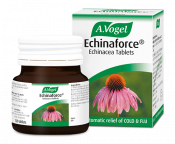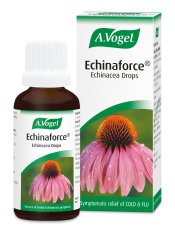Why do I always get sick around the holidays?
Believe it or not, it is actually pretty common to come down with a cold or flu during the holidays. This even has a specific name – 'leisure sickness'.1 Symptoms that crop up at this time are likely to arise because of:
- Stress
- A pre-existing illness.
- Travel
- Alcohol
- Altered eating habits.
Here I take a look at these issues in a little more detail and offer a few suggestions on how to keep cold and flu viruses away.
Work-related stress
When you're working, the period before a holiday can be relatively stressful as you attempt to meet deadlines and complete tasks before taking some time off.
Pre-holiday, a hormone called adrenaline will be released by the adrenal glands. This helps the body deal with stress by providing energy. Whilst adrenaline is being produced, however, so too is the hormone cortisol. This is problematic as cortisol can hamper immune function and we need a healthy immune system to keep colds and flu away.
When work pressure eases and the holidays begin, stress levels usually fall and the production of adrenaline stops. This can lead to a temporary surplus of cortisol which weakens the immune system and makes us more prone to illness.
Holiday stress
Unfortunately, holidays themselves aren't always completely stress-free – you may have to do some travelling or occupy young children for weeks at a time. As stress impairs the immune system, the body has less resistance to cold and flu infections.
You were already ill
If you are busy in the run-up to a holiday, you may not necessarily notice when cold and flu symptoms crop up. The likes of a runny nose and a cough become more difficult to ignore, however, when you're on holiday and have more time to relax.
Travel
If you do any travelling on your holidays, this can expose you to many different viruses.
With lots of people in an enclosed space, be it a car, train, plane or bus, viruses easily circulate and these are breathed in through the nose and mouth. According to research, your risk of catching a cold can increase by as much as 20% when travelling by plane.2
Alcohol
Many of us are likely to increase our consumption of alcohol whilst on holiday. This can, in turn, increase the risk of infection as alcohol actually suppresses the immune system.3
Eating habits change
Diet is another thing that tends to change when we're out of our regular routine. As well as drinking more alcohol, on holiday we may be more inclined to opt for rich, restaurant meals and to have more sweet treats.
As a result, the body may be getting fewer vitamins and minerals than usual. This is problematic as the likes of vitamins A and C help support the immune system and can be important in keeping colds and flu away.
How can I avoid getting sick on holiday?
Now, if you want to prevent 'leisure sickness' during your next break from work, there are a few things I would recommend you do.
Take Echinacea
First of all, our trusty Echinaforce range helps to support the immune system and, in doing so, helps keep colds and flu away.
I recommend taking Echinacea in the lead up to your holidays in order to give your body the best protection possible. In this instance the Echinaforce Tablets are perhaps best as they are really easy to take.
If you have already come down with an infection, our Echinaforce Hot Drink can help to soothe symptoms and prevent the virus from spreading further
Take some 'me time'
Whether you do some exercise, have a relaxing bubble bath or watch a film, be sure to take some time for yourself to help manage stress levels both before and during your holiday.
You can find out more about how to tackle stress here.
Get more vitamin C
As I mentioned already, vitamin C is essential for the health of the immune system. It is a potent antioxidant and is protective of the respiratory system. It also supports the immune system which is important as this keeps viruses and bacteria at bay.
There are numerous foods that contain vitamin C including kiwi, broccoli, kale, spinach and oranges. A natural vitamin C supplement, such as Nature-C might also be an option if you are prone to illness on holiday.
Make time for sleep
Sleep is vital for the health of the immune system so you really need to achieve the recommended eight hours a night if you want to stay healthy whilst on holiday.
To help with this, I advise that you avoid screen time before bed, cut down on caffeine and eat a lighter meal in the evening – if the body is busy digesting food it could make it more difficult to get to sleep.
If you would like more information on how to prevent colds and flu, take a look at my blog '8 drinks to boost your immune system'.
References
1 https://www.ncbi.nlm.nih.gov/pubmed/?term=leisure+sickness
2 https://www.wsj.com/articles/SB10001424052970204058404577108420985863872
3 https://www.ncbi.nlm.nih.gov/pmc/articles/PMC3887500/










